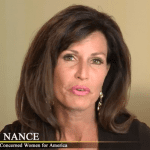In a recent blog post, controversial evangelical pastor and author Doug Wilson reviewed a book titled The Grace of Shame: 7 Ways the Church Has Failed to Love Homosexuals, by Tim Bayly. Wilson points to a growing rift within evangelicalism over LGBT issues and sexual orientation.
This is a book about repentance, and it is also—fittingly—a book of repentance. In it, Tim Bayly tells the story of a man under his ministry years ago, struggling with homosexual temptations. He was challenged repeatedly to abandon his homosexual liaisons, but he was never charged to abandon his general effeminacy. “I had utterly failed him, and this book is a small part of my repentance” (Loc. 2288).
In an excerpt from his book posted on his own blog, Bayly writes:
It’s a lot easier to suppress sinful actions than sinful hearts, but God is not in the business of changing the outside of the cup. Like any good Father, His plea is, “Give me your heart, my son.”
…
But what are we to do, instead? Will we content ourselves with giggling excitedly over gay men and lesbians who promise not to have sex with gay men and lesbians? Will we join them in denying the power of the Holy Spirit to change the sinner’s heart?
This is spiritual abuse. It’s pharisaical. Sure, those men in love with compromise might condemn the work of loving the effeminate and sodomites as “reparative therapy,” telling us we shouldn’t do it, but rather content ourselves with the simple Gospel. They might assure us there’s no need to weep with those who weep; that as long as they promise not to put their body parts in the wrong places, there’s no need for emotional drama, let alone listening to their recounting of their childhood and sharing their agony.
…
The seeker must repent of his effeminate sexual relations, but even more, his effeminate identity. He must repent of his homosexuality and embrace his heterosexuality. God made him a man and the beginning of his new life in Christ must be to confess his manhood.
Increasingly, evangelical Christians have begun to move away from arguing that gay people should be “fixed” and turned straight, arguing instead that they should be urged to live celibate lives. In 2014, Wheaton made waves when it hired an openly gay (but celibate) woman to provide spiritual care for gay and lesbian students. (This didn’t last long.)
Wilson and Bayly disagree with this compromise—strongly. Both argue that the problem is not simply same-sex sexual relations but also “effeminacy.” Gay and lesbian individuals, for Wilson and Bayly, must eschew not only sex but also their gay and lesbian identities. Wilson expounds as follows:
The Grace of Shame argues, pointedly and cogently, that it is “impossible to separate God’s truths from God’s words in Scripture” (Loc. 78).
…
“The Bible doesn’t talk about gender identity. It doesn’t speak of homosexuality and heterosexuality. The Bible talks about male and female, man and woman, and it warns us soft men will not enter the kingdom of God” (Loc. 811).
The same thing goes for the opposite sex. Confusion there is every bit as deadly.
“Hard women will not enter the kingdom of God” (Loc. 816)
Soft men and hard women—a somewhat outdated and limited stereotype of gay men and lesbian women—will not, Wilson warns, enter the kingdom of God. Celibacy is not enough, in other words. Gay people must be fixed.
When I was a child in the 1990s, for the record, the predominant evangelical response to homosexuality was far closer to that of Wilson and Bayly than it was to that of an increasing number of more moderate evangelicals today. I remember my mother physically shuddering when the topic came up—her reaction was visceral. It wasn’t merely that gay people needed to be celibate; it was that something was fundamentally wrong with them. Disordered. Perversion.
That Wilson and Bayly feel the need to speak out against other evangelicals’ increasing (but circumscribed) acceptance of gay and lesbian individuals suggests that things are changing within evangelicalism today—though not enough. While it is a positive thing that an increasing number of evangelicals are no longer trying to make gay people straight, requiring gay individuals to live celibate lives, without forming families or sharing intimacy, is still a problem.
And yet, while I find an inter-evangelical theological conflict as fascinating as anyone else, Bayly and Wilson’s insistence that merely being gay is a sin—and other evangelical’s insistence that gay and lesbian individual must lead celibate lives—raises a different question for this lapsed evangelical: Why?
I recently watched the Star Trek: The Next Generation episode “The Outcast.” In it, Soren, a member of the J’naii, reveals that while her people are androgynous, she is female. J’naii who identify as male or female seek each other out in secret, but are seized and reprogrammed if they are discovered. At one point, during her trial, Soren gives an impassioned speech. We live our lives just like you do, she says. We love like you. We form relationships like you. Why, then, do you hate us, she asks? What is the justification?
There was a time when I accepted the appeal to authority: Being gay or lesbian is wrong because God said so. There was a time when I accepted an appeal to order: Men and women form families and procreate. These arguments no longer serve. I need reasons. Why shouldn’t gay and lesbian individuals be allowed to form families? What makes gay and lesbian sexual relations sinful? What is so wrong with a man being “effeminate” or a woman being “hard”? Why?
Asking too many questions is perhaps why I am a lapsed evangelical. Still, what answers are there, besides “because God said so” or “because that’s just the way it is”? Even the more moderate evangelical position that gay and lesbian individuals don’t need to be cured but should live celibate lives still doesn’t answer the why. What is so wrong about loving relationships between individuals of the same sex?
As other Millennials ponder—and ask—this same question, this issue will continue to plague evangelicals. Some, perhaps, will keep moving, and ultimately turn to a theology that embraces gay and lesbian identities and love; others, like Wilson and Bayly, will continue to hold a hard line, echoing the attitudes I heard growing up in the 1990s. One can only hope that those who hold this hard line will be increasingly marginal and on the defensive.











